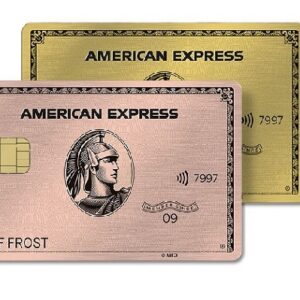This article may contain references to products or services from one or more of our advertisers or partners. We may receive compensation when you click on links to those products or services. Nonetheless, our opinions are our own.

Updated by Albert Fang
A lot of people assume that there’s some sort of magic secret to saving money that will suddenly make it easier for them to keep more cash in their wallets and bank accounts. However, the truth is that the secrets to saving money aren’t quite as secret as you might think.
The best money saving tips come from understanding that you need to think carefully about the purchases you make and be an “active” consumer, instead of a passive one. If you take the time to really get to know your spending habits and adjust them as necessary, you’ll unlock the secrets to saving cash in no time.
Here are a few things you’ll need to get started.
1. An Active Attitude
As mentioned above, an “active” attitude to spending is one of the most important things you can have when you want to save money. That doesn’t mean that you go out and look for ways to use your cash. Instead, it means that you always make sure that you’re using your cash properly. In other words, you don’t just add things to your shopping basket without thinking about it, you go out with a list of items you need and buy only those things.
At the same time, an active attitude means that you don’t just sign up for a service from one vendor and stay with them year after year without thinking. Plenty of customers are overpaying for car insurance just because they haven’t taken the time to compare their options online. Instead, they passively renew and end up with a deal that’s hundreds of pounds more expensive than the best offer they could get. Don’t be passive with your cash! Compare the best auto insurance companies before making a choice.
2. A Budget
Budgets have a bad reputation as being exhausting, boring and often overwhelming things. However, if you really want to save money, you need to understand precisely how much cash you have coming in, how much you have going out, and where all that money is going.
Sit down with your latest bank statement and make a list of all the expenses that you generally have in a given month. Once you have your list, you can split it up into different sections, like one for “food,” one for “essential bills,” and one for other items like entertainment. Generally, your essential bills will take up the most of your cash. If you find that you’re seriously over-spending on food and entertainment, then it might be time to re-think your shopping habits and start budget tracking more effectively.
3. Cut Your Spending Slowly
Once you know where all your money is going, and where you can make cuts to get the best results, make sure that you don’t rush to accomplish too much, too fast. Often, people try to cut down their “fun spending” to nothing instantly, and this means that they end up falling off the budgeting wagon much faster because they find the process of watching their spending to be too exhausting.
If you spend $300 a month on entertainment, try to cut down to $250 at first, then $150 after a couple of months. Take it slow and try not to go all the way down to zero if you can. We all need a little room in our budget to blow off steam at times. Instead of cutting out the things you enjoy, try to cut out the things that you don’t need, and you’re not really going to miss either, like an expensive cup of coffee every day at work.
4. Get Savvier with your Shopping
Remember that saving money isn’t just about cutting down your spending habits, it’s also about making sure that you spend cash carefully too. For instance, instead of just buying the same items from the same store you usually go to, shop online and see if you can find better deals elsewhere. For this, you can even check MyProsAndCons online reviews about the products you want to buy. This will help you choose what’s best knowing that it’s worth your money. Use apps on your smartphone to get exclusive discounts on products, and make sure that you’re always checking for codes and coupons wherever you shop.
Just remember that when you are looking for ways to save, you shouldn’t be looking for excuses to buy things you don’t really need. You should only purchase an item in a sale or with a discount if you would have bought it anyway, without the money off.
5. Deal with Debt
Finally, most of us have some debt to deal with in our lives. The best way to make sure that your debt doesn’t become too overwhelming is to get rid of it as quickly as possible. While it’s a good idea to have some cash in your bank account for emergencies, avoid setting other goals for your extra cash until you’ve cleared your debt. This way you’ll have more money to save in the long-term.

Reviewed and edited by Albert Fang.
See a typo or want to suggest an edit/revision to the content? Use the contact us form to provide feedback.
At FangWallet, we value editorial integrity and open collaboration in curating quality content for readers to enjoy. Much appreciated for the assist.
Did you like our article and find it insightful? We encourage sharing the article link with family and friends to benefit as well - better yet, sharing on social media. Thank you for the support! 🍉
Article Title: How to Unlock the Secret to Saving Money
https://fangwallet.com/2018/09/28/how-to-unlock-the-secret-to-saving-money/The FangWallet Promise
FangWallet is an editorially independent resource - founded on breaking down challenging financial concepts for anyone to understand since 2014. While we adhere to editorial integrity, note that this post may contain references to products from our partners.
The FangWallet promise is always to have your best interest in mind and be transparent and honest about the financial picture.
Become an Insider

Subscribe to get a free daily budget planner printable to help get your money on track!
Make passive money the right way. No spam.
Editorial Disclaimer: The editorial content on this page is not provided by any of the companies mentioned. The opinions expressed here are the author's alone.
The content of this website is for informational purposes only and does not represent investment advice, or an offer or solicitation to buy or sell any security, investment, or product. Investors are encouraged to do their own due diligence, and, if necessary, consult professional advising before making any investment decisions. Investing involves a high degree of risk, and financial losses may occur including the potential loss of principal.
Source Citation References:
+ Inspo












































